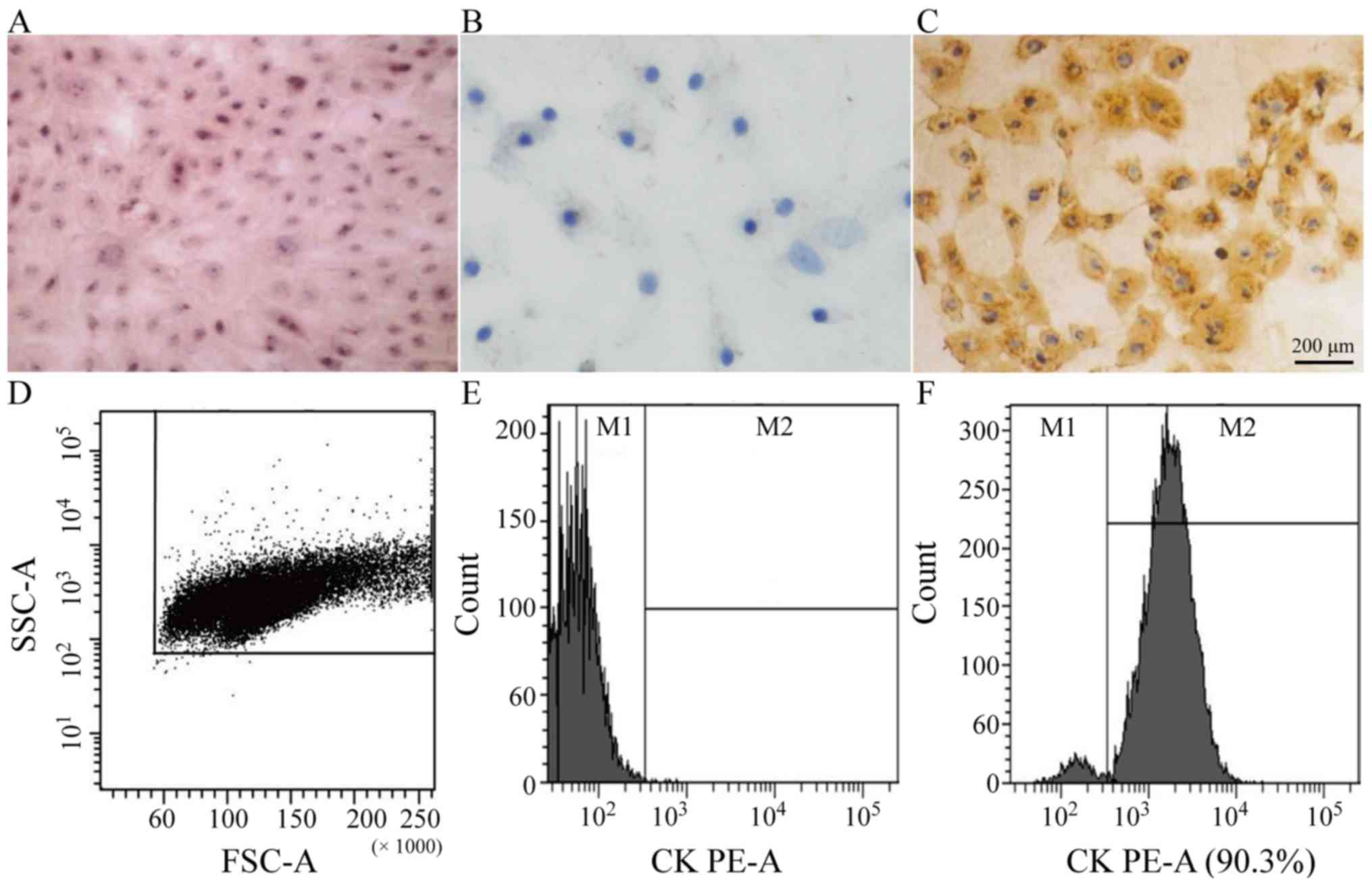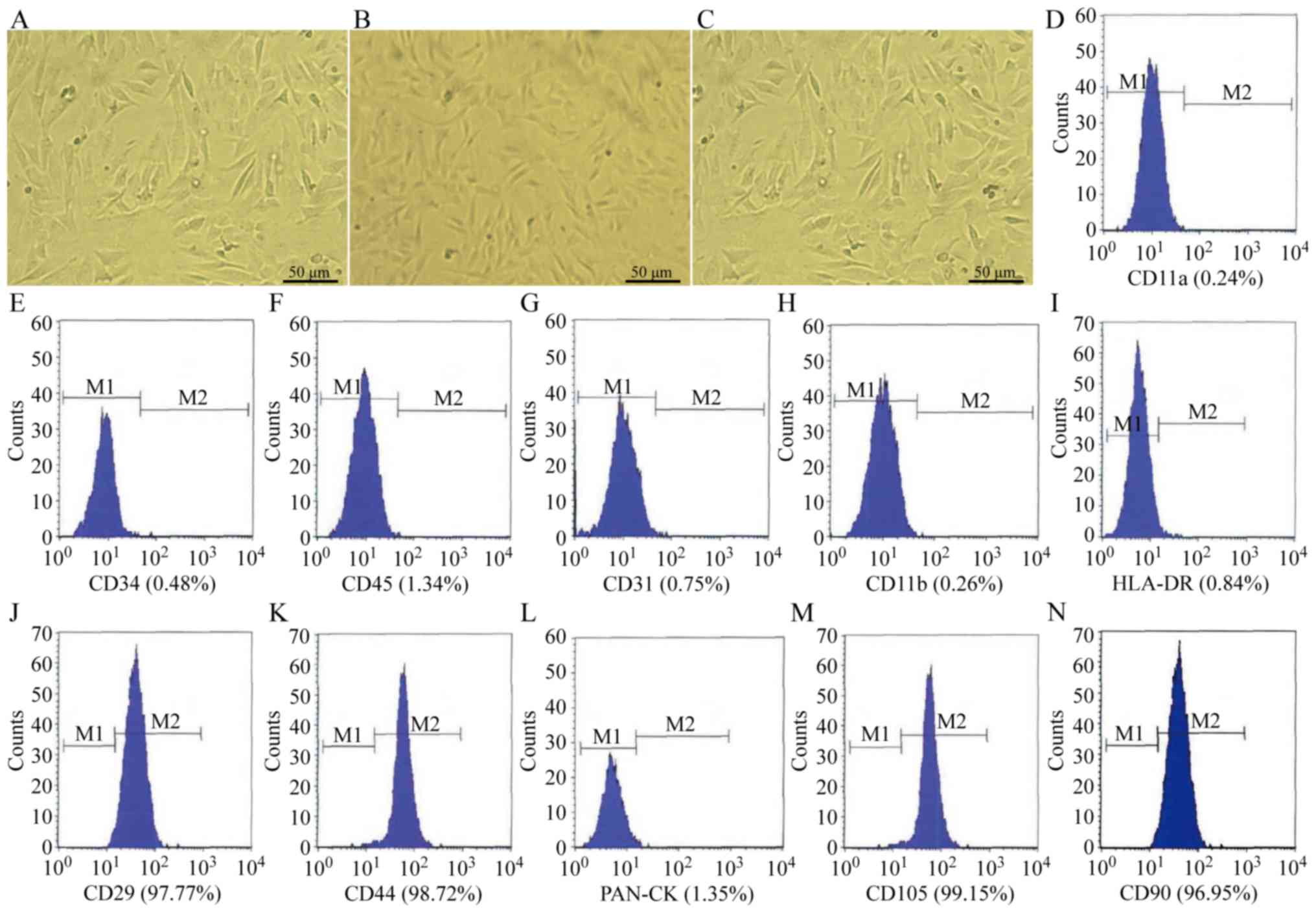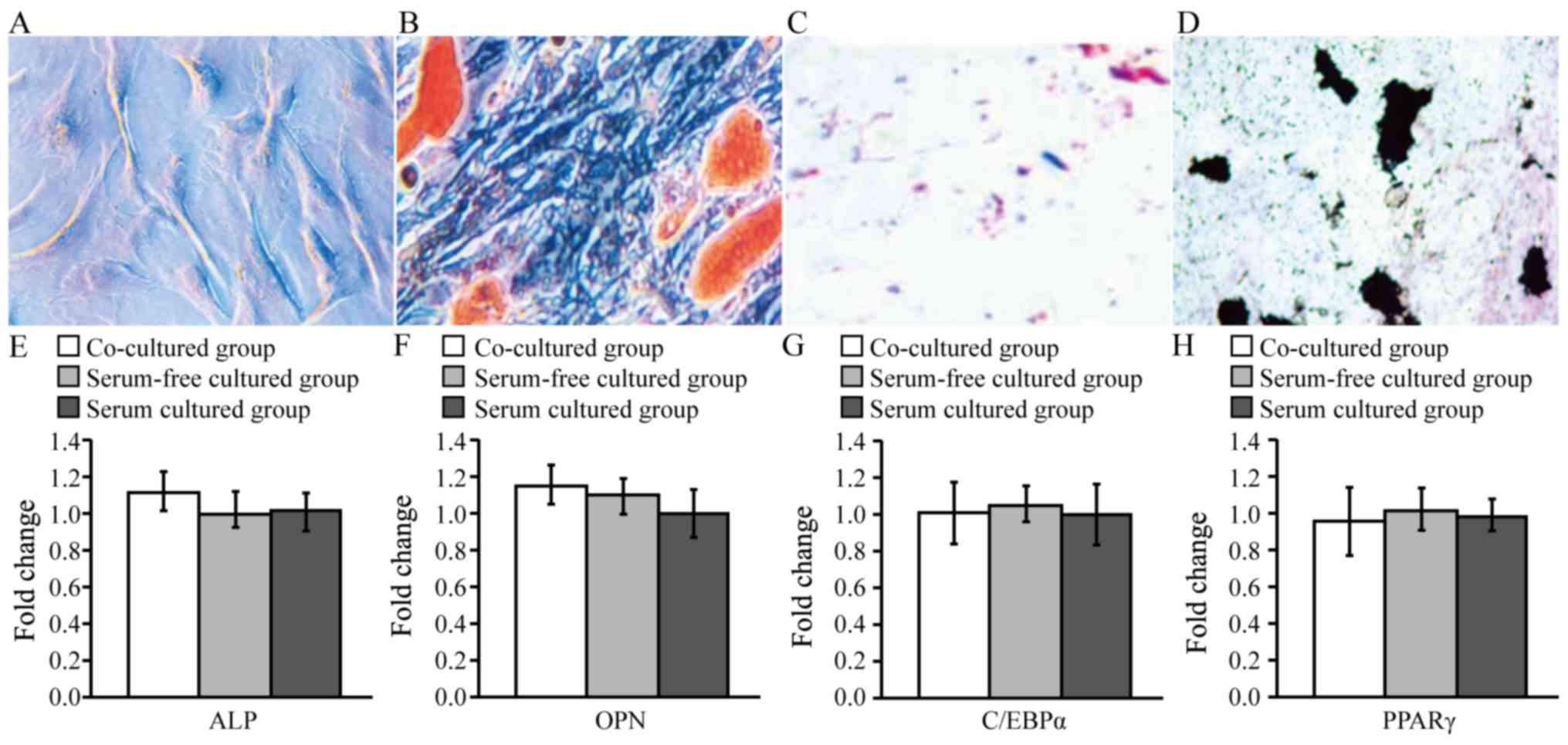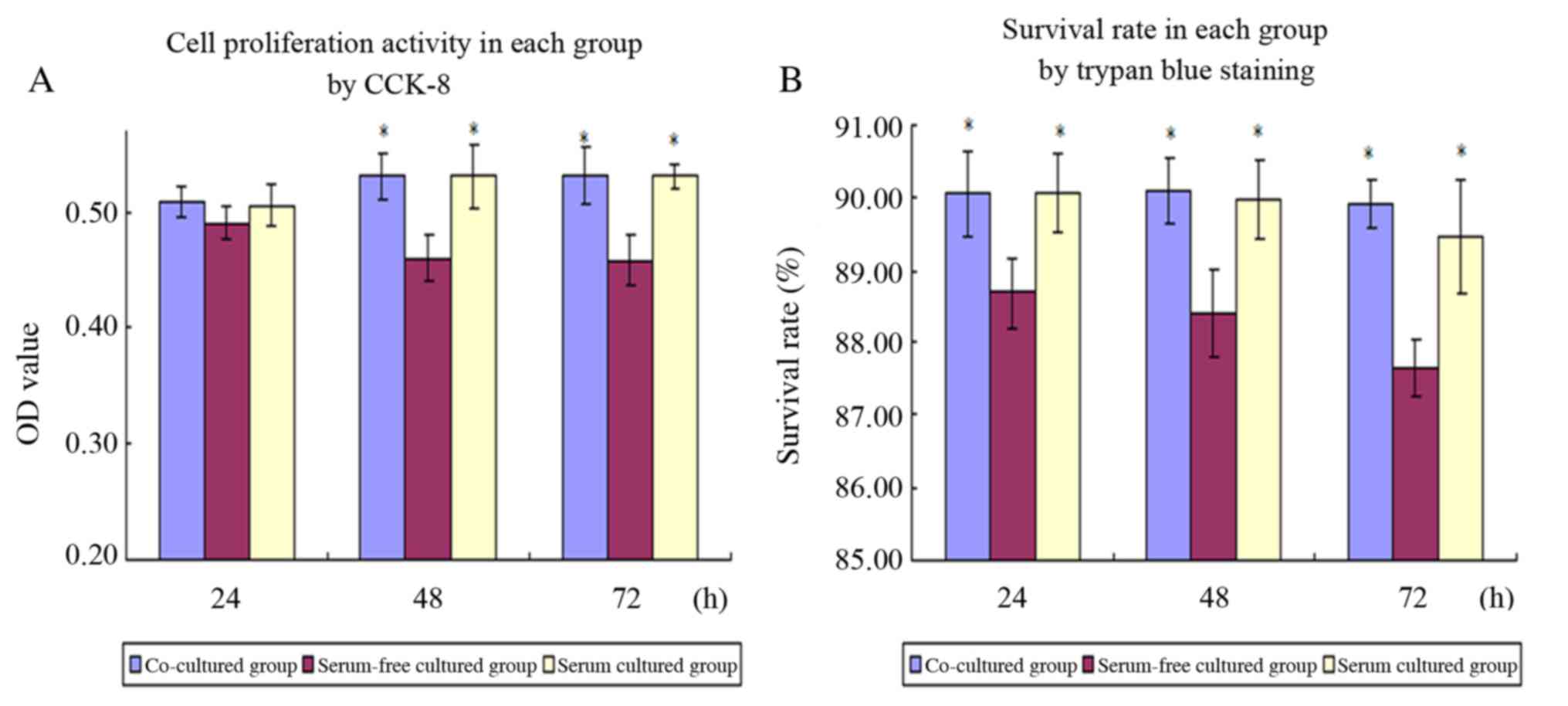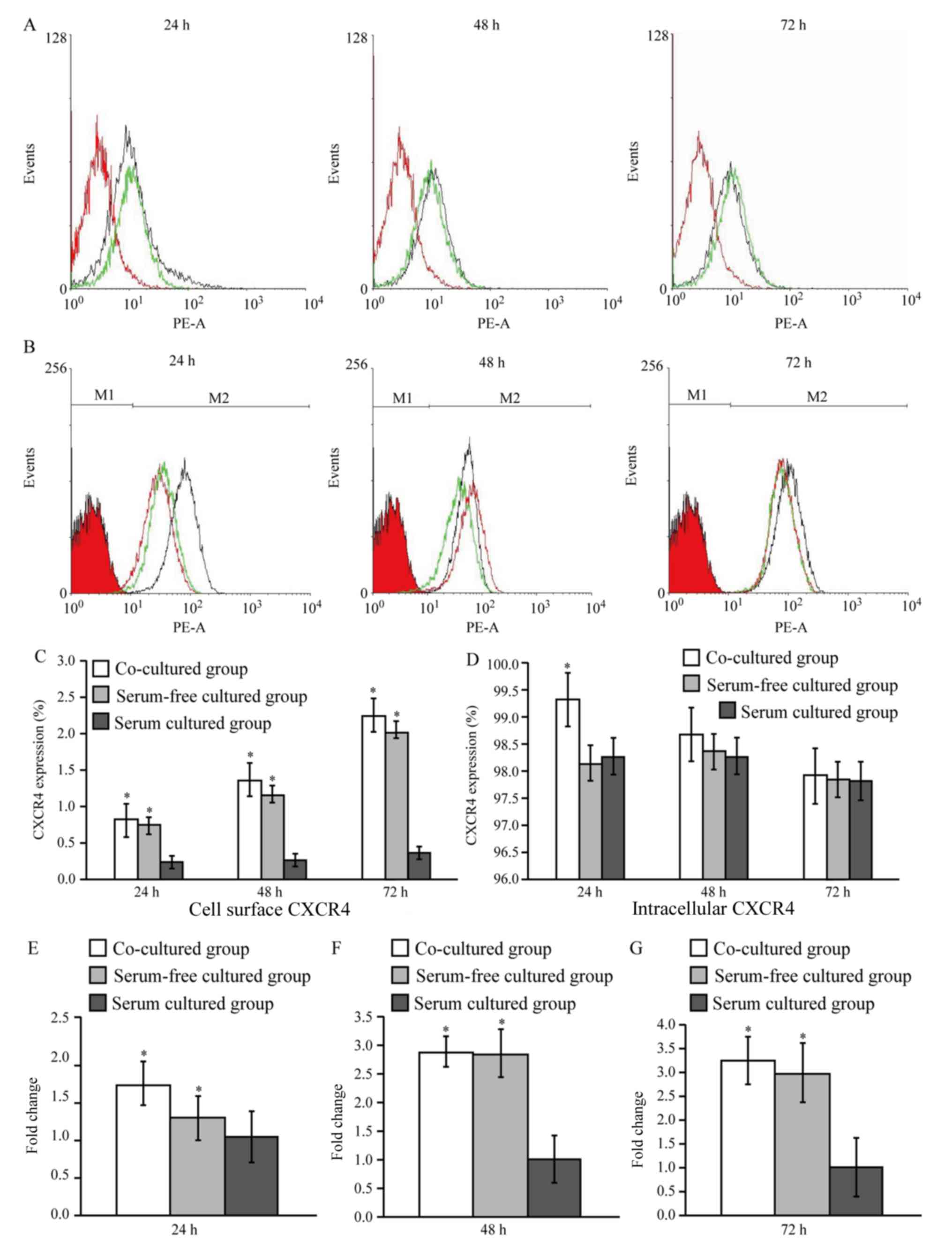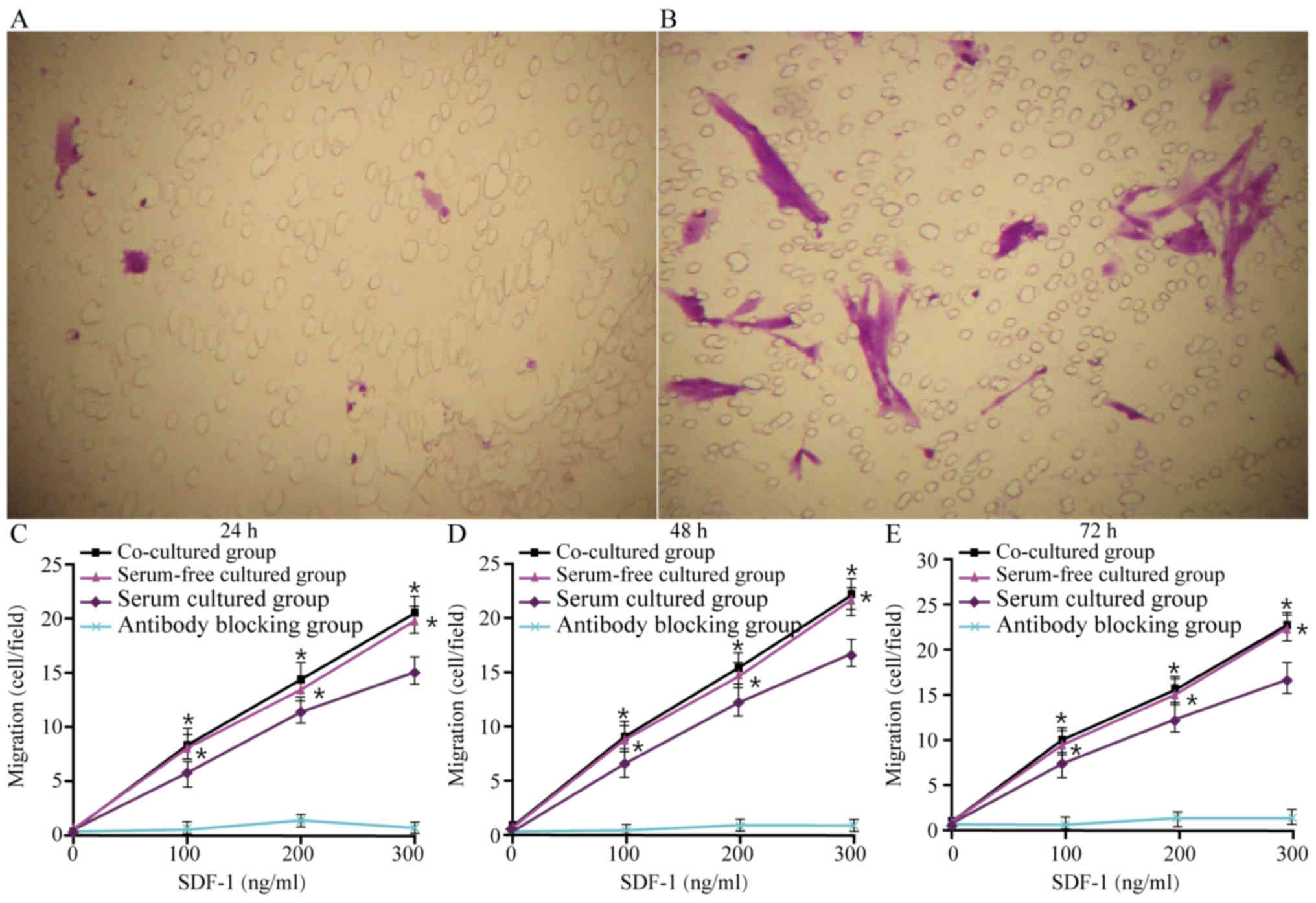|
1
|
Castro-Manrreza ME and Montesinos JJ:
Immunoregulation by mesenchymal stem cells: Biological aspects and
clinical applications. J Immunol Res. 2015:3949172015. View Article : Google Scholar : PubMed/NCBI
|
|
2
|
Bernardo ME and Locatelli F: Mesenchymal
stromal cells in hematopoietic stem cell transplantation. Methods
Mol Biol. 1416:3–20. 2016. View Article : Google Scholar : PubMed/NCBI
|
|
3
|
Larsen S and Lewis ID: Potential
therapeutic applications of mesenchymal stromal cells. Pathology.
43:592–604. 2011. View Article : Google Scholar : PubMed/NCBI
|
|
4
|
Manuelpillai U, Moodley Y, Borlongan CV
and Parolini O: Amniotic membrane and amniotic cells: Potential
therapeutic tools to combat tissue inflammation and fibrosis?
Placenta. 32 Suppl 4:S320–S325. 2011. View Article : Google Scholar : PubMed/NCBI
|
|
5
|
Shi MX, Fang BJ, Liao LM, Yang SG, Liu YH
and Zhao CH: Flk1+ mesenchymal stem cells ameliorate carbon
tetrachloride-induced liver fibrosis in mice. Sheng Wu Gong Cheng
Xue Bao. 21:396–401. 2005.(In Chinese). PubMed/NCBI
|
|
6
|
Wu Y, Wang Z, Cao Y, Xu L, Li X, Liu P,
Yan P, Liu Z, Zhao D, Wang J, et al: Cotransplantation of
haploidentical hematopoietic and umbilical cord mesenchymal stem
cells with a myeloablative regimen for refractory/relapsed
hematologic malignancy. Ann Hematol. 92:1675–1684. 2013. View Article : Google Scholar : PubMed/NCBI
|
|
7
|
Nakamura K, Inaba M, Sugiura K, Yoshimura
T, Kwon AH, Kamiyama Y and Ikehara S: Enhancement of allogeneic
hematopoietic stem cell engraftment and prevention of GVHD by
intra-bone marrow bone marrow transplantation plus donor lymphocyte
infusion. Stem Cells. 22:125–134. 2004. View Article : Google Scholar : PubMed/NCBI
|
|
8
|
Shi M, Li J, Liao L, Chen B, Li B, Chen L,
Jia H and Zhao RC: Regulation of CXCR4 expression in human
mesenchymal stem cells by cytokine treatment: role in homing
efficiency in NOD/SCID mice. Haematologica. 92:897–904. 2007.
View Article : Google Scholar : PubMed/NCBI
|
|
9
|
Gong J, Meng HB, Hua J, Song ZS, He ZG,
Zhou B and Qian MP: The SDF-1/CXCR4 axis regulates migration of
transplanted bone marrow mesenchymal stem cells towards the
pancreas in rats with acute pancreatitis. Mol Med Rep. 9:1575–1582.
2014. View Article : Google Scholar : PubMed/NCBI
|
|
10
|
Rider P, Carmi Y and Cohen I: Biologics
for targeting inflammatory cytokines, clinical uses, and
limitations. Int J Cell Biol. 2016:92596462016. View Article : Google Scholar : PubMed/NCBI
|
|
11
|
Yang S, Sun HM, Yan JH, Xue H, Wu B, Dong
F, Li WS, Ji FQ and Zhou DS: Conditioned medium from human amniotic
epithelial cells may induce the differentiation of human umbilical
cord blood mesenchymal stem cells into dopaminergic neuron-like
cells. J Neurosci Res. 91:978–986. 2013. View Article : Google Scholar : PubMed/NCBI
|
|
12
|
Tabatabaei M, Mosaffa N, Nikoo S,
Bozorgmehr M, Ghods R, Kazemnejad S, Rezania S, Keshavarzi B, Arefi
S, Ramezani-Tehrani F, et al: Isolation and partial
characterization of human amniotic epithelial cells: The effect of
trypsin. Avicenna J Med Biotechnol. 6:10–20. 2014.PubMed/NCBI
|
|
13
|
Fang B, Shi M, Liao L, Yang S, Liu Y and
Zhao RC: Multiorgan engraftment and multilineage differentiation by
human fetal bone marrow Flk1+/CD31-/CD34-Progenitors. J Hematother
Stem Cell Res. 12:603–613. 2003. View Article : Google Scholar : PubMed/NCBI
|
|
14
|
Sawa M, Inoue M, Yabuki A, Kohyama M,
Miyoshi N, Setoguchi A and Yamato O: Rapid immunocytochemistry for
the detection of cytokeratin and vimentin: Assessment of its
diagnostic value in neoplastic diseases of dogs. J Vet Clin Pathol.
46:172–178. 2017. View Article : Google Scholar
|
|
15
|
Livak KJ and Schmittgen TD: Analysis of
relative gene expression data using real-time quantitative PCR and
the 2(-Delta Delta C(T)) method. Methods. 25:402–408. 2001.
View Article : Google Scholar : PubMed/NCBI
|
|
16
|
Shi M, Li W, Li B, Li J and Zhao C:
Multipotency of adult stem cells derived from human amnion. Sheng
Wu Gong Cheng Xue Bao. 25:754–760. 2009.(In Chinese). PubMed/NCBI
|
|
17
|
Vojdani Z, Babaei A, Vasaghi A, Habibagahi
M and Talaei-Khozani T: The effect of amniotic membrane extract on
umbilical cord blood mesenchymal stem cell expansion: Is there any
need to save the amniotic membrane besides the umbilical cord
blood? Iran J Basic Med Sci. 19:89–96. 2016.PubMed/NCBI
|
|
18
|
Capobianco V, Caterino M, Iaffaldano L,
Nardelli C, Sirico A, Del Vecchio L, Martinelli P, Pastore L, Pucci
P and Sacchetti L: Proteome analysis of human amniotic mesenchymal
stem cells (hA-MSCs) reveals impaired antioxidant ability,
cytoskeleton and metabolic functionality in maternal obesity. Sci
Rep. 6:252702016. View Article : Google Scholar : PubMed/NCBI
|
|
19
|
Zhou H, Zhang H, Yan Z and Xu R:
Transplantation of human amniotic mesenchymal stem cells promotes
neurological recovery in an intracerebral hemorrhage rat model.
Biochem Biophys Res Commun. 475:202–208. 2016. View Article : Google Scholar : PubMed/NCBI
|
|
20
|
Herrmann RP and Sturm MJ: Adult human
mesenchymal stromal cells and the treatment of graft versus host
disease. Stem Cells Cloning. 7:45–52. 2014.PubMed/NCBI
|
|
21
|
Belmar-Lopez C, Mendoza G, Oberg D, Burnet
J, Simon C, Cervello I, Iglesias M, Ramirez JC, Lopez-Larrubia P,
Quintanilla M, Martin-Duque P, et al: Tissue-derived mesenchymal
stromal cells used as vehicles for anti-tumor therapy exert
different in vivo effects on migration capacity and tumor growth.
BMC Med. 11:1392013. View Article : Google Scholar : PubMed/NCBI
|
|
22
|
Sharma M, Afrin F, Tripathi R and
Gangenahalli G: Regulated expression of CXCR4 constitutive active
mutants revealed the up-modulated chemotaxis and up-regulation of
genes crucial for CXCR4 mediated homing and engraftment of
hematopoietic stem/progenitor cells. J Stem Cells Regen Med.
9:19–27. 2013.PubMed/NCBI
|
|
23
|
Li J, Guo W, Xiong M, Han H, Chen J, Mao
D, Tang B, Yu H and Zeng Y: Effect of SDF-1/CXCR4 axis on the
migration of transplanted bone mesenchymal stem cells mobilized by
erythropoietin toward lesion sites following spinal cord injury.
Int J Mol Med. 36:1205–1214. 2015. View Article : Google Scholar : PubMed/NCBI
|
|
24
|
Díaz-Prado S, Muiños-López E,
Hermida-Gómez T, Rendal-Vázquez ME, Fuentes-Boquete I, de Toro FJ
and Blanco FJ: Multilineage differentiation potential of cells
isolated from the human amniotic membrane. J Cell Biochem.
111:846–857. 2010. View Article : Google Scholar : PubMed/NCBI
|
|
25
|
Pelekanos RA, Ting MJ, Sardesai VS, Ryan
JM, Lim YC, Chan JK and Fisk NM: Intracellular trafficking and
endocytosis of CXCR4 in fetal mesenchymal stem/stromal cells. BMC
Cell Biol. 15:152014. View Article : Google Scholar : PubMed/NCBI
|
|
26
|
Li Y, Yu X, Lin S, Li X, Zhang S and Song
YH: Insulin-like growth factor 1 enhances the migratory capacity of
mesenchymal stem cells. Biochem Biophys Res Commun. 356:780–784.
2007. View Article : Google Scholar : PubMed/NCBI
|
|
27
|
Li M, Yu J, Li Y, Li D, Yan D, Qu Z and
Ruan Q: CXCR4 positive bone mesenchymal stem cells migrate to human
endothelial cell stimulated by ox-LDL via SDF-1alpha/CXCR4
signaling axis. Exp Mol Pathol. 88:250–255. 2010. View Article : Google Scholar : PubMed/NCBI
|
|
28
|
Hung CM, Hsu YC, Chen TY, Chang CC and Lee
MJ: Cyclophosphamide promotes breast cancer cell migration through
CXCR4 and matrix metalloproteinases. Cell Biol Int. 41:345–352.
2017. View Article : Google Scholar : PubMed/NCBI
|
|
29
|
Sheng X, Zhong H, Wan H, Zhong J and Chen
F: Granulocyte colony-stimulating factor inhibits CXCR4/SDF-1α
signaling and overcomes stromal-mediated drug resistance in the
HL-60 cell line. Exp Ther Med. 12:396–404. 2016. View Article : Google Scholar : PubMed/NCBI
|
|
30
|
Shen W, Chen J, Zhu T, Chen L, Zhang W,
Fang Z, Heng BC, Yin Z, Chen X, Ji J, et al: Intra-articular
injection of human meniscus stem/progenitor cells promotes meniscus
regeneration and ameliorates osteoarthritis through stromal
cell-derived factor-1/CXCR4-mediated homing. Stem Cells Transl Med.
3:387–394. 2014. View Article : Google Scholar : PubMed/NCBI
|















